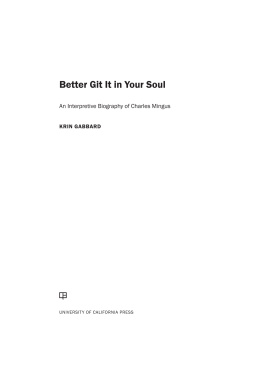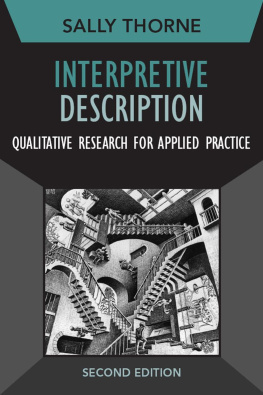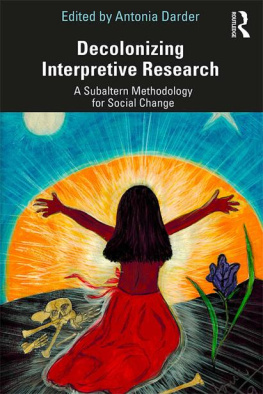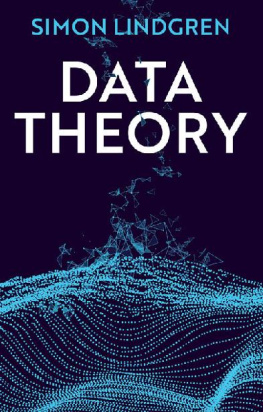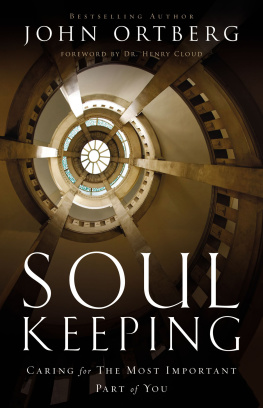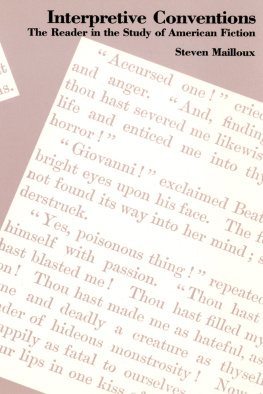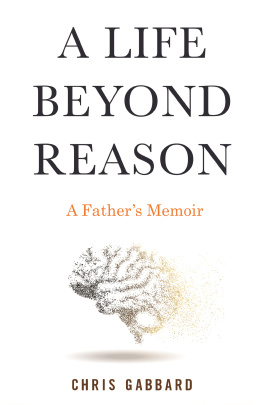Gabbard Krin - Better Git it in Your Soul: An Interpretive Biography of Cha
Here you can read online Gabbard Krin - Better Git it in Your Soul: An Interpretive Biography of Cha full text of the book (entire story) in english for free. Download pdf and epub, get meaning, cover and reviews about this ebook. City: United States, year: 2016, publisher: University of California Press, genre: Non-fiction. Description of the work, (preface) as well as reviews are available. Best literature library LitArk.com created for fans of good reading and offers a wide selection of genres:
Romance novel
Science fiction
Adventure
Detective
Science
History
Home and family
Prose
Art
Politics
Computer
Non-fiction
Religion
Business
Children
Humor
Choose a favorite category and find really read worthwhile books. Enjoy immersion in the world of imagination, feel the emotions of the characters or learn something new for yourself, make an fascinating discovery.
- Book:Better Git it in Your Soul: An Interpretive Biography of Cha
- Author:
- Publisher:University of California Press
- Genre:
- Year:2016
- City:United States
- Rating:4 / 5
- Favourites:Add to favourites
- Your mark:
- 80
- 1
- 2
- 3
- 4
- 5
Better Git it in Your Soul: An Interpretive Biography of Cha: summary, description and annotation
We offer to read an annotation, description, summary or preface (depends on what the author of the book "Better Git it in Your Soul: An Interpretive Biography of Cha" wrote himself). If you haven't found the necessary information about the book — write in the comments, we will try to find it.
Gabbard Krin: author's other books
Who wrote Better Git it in Your Soul: An Interpretive Biography of Cha? Find out the surname, the name of the author of the book and a list of all author's works by series.
Better Git it in Your Soul: An Interpretive Biography of Cha — read online for free the complete book (whole text) full work
Below is the text of the book, divided by pages. System saving the place of the last page read, allows you to conveniently read the book "Better Git it in Your Soul: An Interpretive Biography of Cha" online for free, without having to search again every time where you left off. Put a bookmark, and you can go to the page where you finished reading at any time.
Font size:
Interval:
Bookmark:

KRIN GABBARD

UNIVERSITY OF CALIFORNIA PRESS

Michael P. Roth
and Sukey Garcetti
have endowed this
imprint to honor the
memory of their parents,
Julia and Harry Roth,
whose deep love of music
they wish to share
with others.
The publisher gratefully acknowledges the generous support of the Music in America Endowment Fund of the University of California Press Foundation, which was established by a major gift from Sukey and Gil Garcetti, Michael P. Roth, and the Roth Family Foundation.
University of California Press, one of the most distinguished university presses in the United States, enriches lives around the world by advancing scholarship in the humanities, social sciences, and natural sciences. Its activities are supported by the UC Press Foundation and by philanthropic contributions from individuals and institutions. For more information, visit www.ucpress.edu.
University of California Press
Oakland, California
2016 by The Regents of the University of California
Library of Congress Cataloging-in-Publication Data
Gabbard, Krin, author.
Better git it in your soul : an interpretive biography of Charles Mingus / Krin Gabbard.
pages cm
Includes bibliographical references and index.
ISBN 978-0-520-26037-5 (cloth : alk. paper)
ISBN 978-0-520-96374-0 (ebook)
1. Mingus, Charles, 19221979. 2. Jazz musiciansUnited StatesBiography. 3. Double bassistsUnited StatesBiography. I. Title.
ML 418. M 45 G 33 2016
781.65092dc23
[B]
2015031907
Manufactured in the United States of America
24 23 22 21 20 19 18 17 16
10 9 8 7 6 5 4 3 2 1
In keeping with a commitment to support environmentally responsible and sustainable printing practices, UC Press has printed this book on Natures Natural, a fiber that contains 30% post-consumer waste and meets the minimum requirements of ANSI/NISO Z 39.48-1992 ( R 1997) ( Permanence of Paper ).
For more Mingus Mondays
And as always, for Paula, who may even love this music as much as I do
It was 1963 and I was fifteen, growing up in Charleston, Illinois, a town with a population of ten thousand located two hundred miles south of Chicago. I may have been especially prone to a transformation at that moment because of my devotion to Mad magazine. In the late 1950s and early 1960s, long before it was a childs comic book featuring Spy vs. Spy, Mad approached American culture with irreverent satire, much of which I understood, and with New York Jewish humor, much of which I did not. Nevertheless, had it not been for Mad, I might have grown up believing that tail fins on cars were not stupid.
Mad essentially confirmed what I was already learning from my nonconformist parents: that much of what seems healthy and normal must be approached with scrupulous skepticism. Like my slightly bohemian father, a professor of theater arts at Eastern Illinois University in Charleston, the writers at Mad were much more critical of The Day People, who carried briefcases and wore generic fedoras with small brims, than of The Night People, who lived mostly in New York and stayed up all night, without watching television.
In Mad, jazz artists were definitely among The Night People, but that did not prevent them from being frequent targets for ridicule. Of course, with their berets, cigarette holders, goatees, and bopspeak, they were asking for it: they relished bourgeois contempt, even going so far as to embrace the claim that they and their music were insane. With the kind of irony I was just beginning to appreciate, they made crazy a synonym for excellent.
I had become unironically devoted to jazz as a high school sophomore, largely because of Alan Coutant, a senior who played alto saxophone in the school band and the university jazz ensemble with the liquid, lickety-split facility of Lee Konitz. His ability with the saxophone was especially astounding in contrast to my clunky cornet, an instrument that did not allow for the speed with which Alan could play his saxophone. Just warming up before high school band practice, Alan would play mysterious but logical patterns, always with startling velocity. He buried his head in his music stand as he played, so I assumed he was playing something written down. I was amazed the first time I walked around behind him and discovered there was nothing but an unopened folder on his stand. He was improvising!
Even though I certainly could not play improvised jazz myself, I knew this was my music. Soon I was buying jazz LPs at a record store in nearby Mattoon, Illinois. The jazz aficionado who owned the store sold me LPs by Stan Kenton, Shelley Manne, Stan Getz, and Andr Previn. I also began listening to a disc jockey named Pete George who played jazz for two hours every Sunday afternoon on a Mattoon radio station. Petes tastes ran to Dixieland and the white swing bands, but he did introduce me to Duke Ellington. I have maintained a lifelong devotion to Ellington, ever since Pete insisted that I start listing seriously to Duke after I called to tell him I preferred Count Basie. To this day, I feel a bit smug when someone tells me they prefer Basie to Ellington.
I was still fifteen when I acquired a copy of the Schwann Catalog, a monthly periodical that listed every record in print. Although I would never hear many of the jazz musicians listed in that issue of the Schwann, including a group with the intriguing name Firehouse Five Plus Two, I knew all their names from my careful and repeated perusings of the catalogs jazz section. The pages were eventually dog-eared down to the print.
One night I was listening to the little cracker-box AM radio my grandmother had recently given me. It was eleven oclock, and I was supposed to be asleep. My parents may have been unusual, but they did try to enforce bedtime rules, except on Sunday nights when I was allowed to stay up to watch Alfred Hitchcock Presents. But listening to the radio after ten was not even in the gray zone, so I had to be careful.
Usually I listened to WLS, a station out of Chicago that played the pop music so essential to the lives of me and my high school friends. One night, while trying to tune in WLS at 890 on the AM dial, I discovered a station out of Dallas/Ft. Worth, probably at 870. They were playing jazz, and it was modern. No Dixieland or Tommy Dorsey. I had never heard such enchanting music on the radio. The DJ, I learned, was Dick Harp, and he had a regular Tuesday-Thursday show, beginning at 11:00 P.M . From then on, unless I was totally exhausted, I would tune in. Many years later, at a jazz studies conference in Dallas, I asked some colleagues who were roughly my age what they knew about Dick Harp. One remembered him and his program and told me that Dick also played polite piano jazz in Dallas night clubs.
Like most jazz DJs in those days, Dick Harp played the LPs the record companies sent to his radio station. These included the conscientiously marketed, strikingly designed LPs on the impulse! label. In the 1960s, impulse! released some of the best jazz records ever, among them Benny Carters Further Definitions, Oliver Nelsons Blues and the Abstract Truth, Max Roachs Percussion, Bitter Sweet, Gil Evanss Out of the Cool, and several LPs by John Coltrane that represent his most distinguished work at the end of his life. The producers Creed Taylor and Bob Thiele made sure that most of the music they released was recorded at the state-of-the-art studio of Rudy van Gelder, without question the most important recording engineer since the 1950s.
Font size:
Interval:
Bookmark:
Similar books «Better Git it in Your Soul: An Interpretive Biography of Cha»
Look at similar books to Better Git it in Your Soul: An Interpretive Biography of Cha. We have selected literature similar in name and meaning in the hope of providing readers with more options to find new, interesting, not yet read works.
Discussion, reviews of the book Better Git it in Your Soul: An Interpretive Biography of Cha and just readers' own opinions. Leave your comments, write what you think about the work, its meaning or the main characters. Specify what exactly you liked and what you didn't like, and why you think so.

